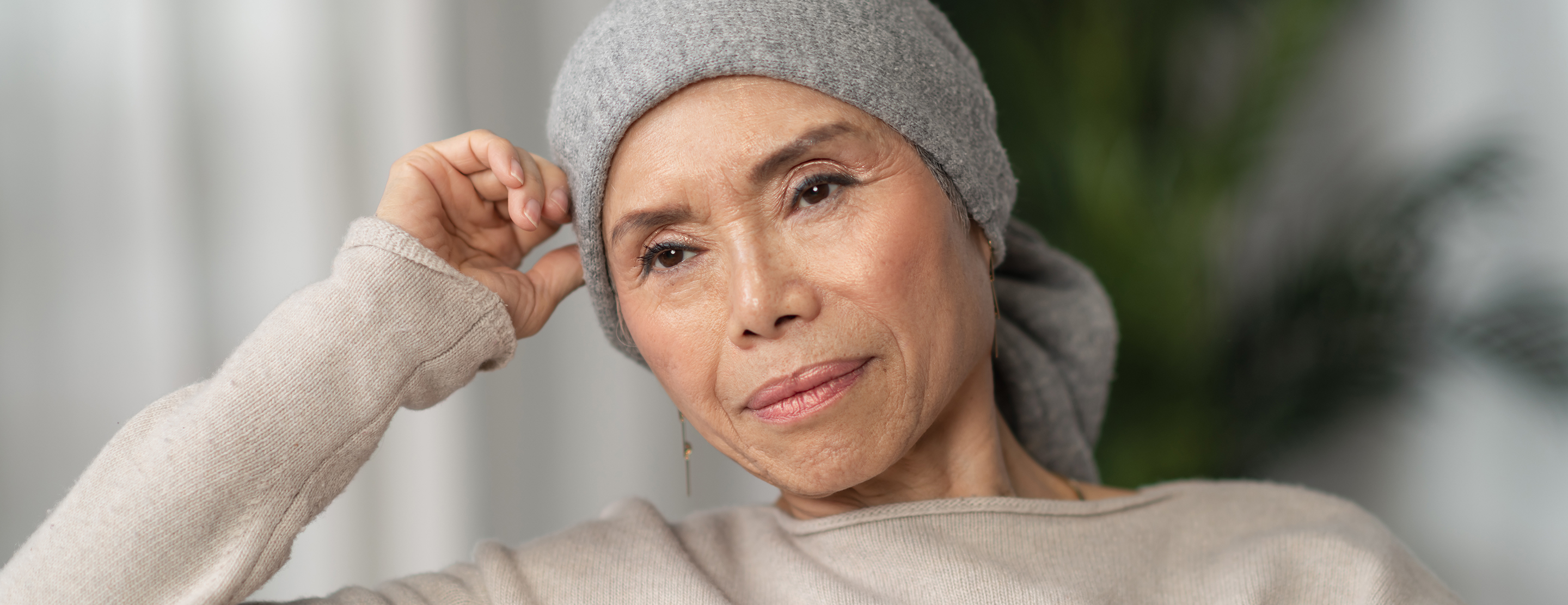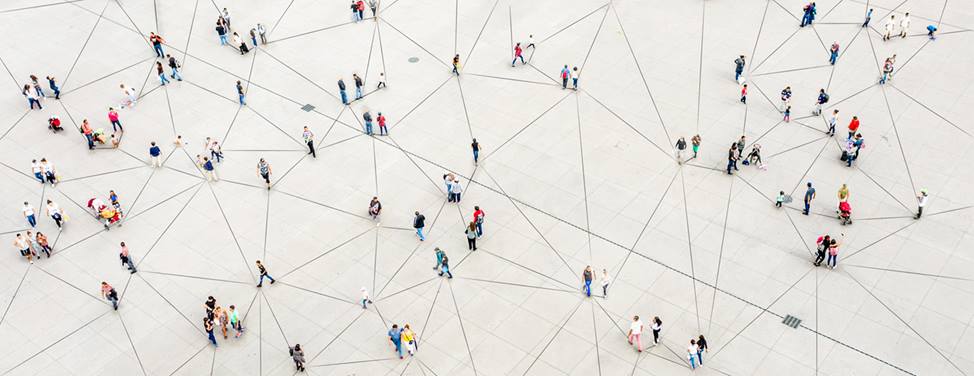
FAQ: Coronavirus and Patients with Cancer
Last updated June 2, 2020
If you or one of your loved ones is a UCSF cancer patient, get answers here to important questions about coronavirus (COVID-19) precautions and your cancer care.
Who is at higher risk of getting very sick from COVID-19?
Older adults (60 years and older) and those with serious chronic medical conditions are at higher risk of getting sick from COVID-19. The serious chronic medical conditions can include heart disease, diabetes, lung disease and cancer. Patients who are immunocompromised are also at higher risk.
What does it mean to be immunocompromised?
When the body's white blood cells, which fight infections, are low or do not function well, the body is unable to fight infections effectively. Immunocompromised patients may include patients with cancer and those who are on chemotherapy. It can also include patients with HIV, transplant patients, patients who are on immunosuppressive medication or patients with other known immunodeficiencies.
As a patient with cancer, how much higher is my risk of severe consequences of COVID-19?
A recent Chinese study of patients with cancer who had COVID-19 showed that patients who underwent chemotherapy or surgery in the past month had a higher risk compared to those who had not received recent treatment. The risk appears to be higher in patients with more than one chronic medical condition.
Patients who are undergoing active treatment for cancer are presumably at higher risk than those who are in remission. Patients who are in the first year after stem cell transplantation or CAR T-cell therapy could be at higher risk for complications if they get infected with COVID-19. Those who are beyond one year after transplantation and are still considered to be immunocompromised may remain at an elevated risk for complications.
Will I be safe in the hospital if UCSF Health is treating proven or suspected COVID-19 patients?
The UCSF Helen Diller Family Comprehensive Cancer Center is here for you, offering safe and rapid access to our services for both new and current patients. Our primary focus and interest in this challenging time is to continue to provide the same high quality of care that you have come to expect from us. In an effort to do this, we have been working closely with our experts in infectious disease at UCSF to modify our policies for care and creation of safe physical environments. Some of the things you will notice include the following:
- Social distancing markers on the floors, walls and furniture to help everyone maintain 6 feet of distance.
- Health screening for everyone who enters our buildings, including all staff, physicians, patients and contractors.
- Masks and the use of hand sanitizer required by everyone entering our facilities.
- COVID-19 testing with a rapid turnaround time for all patients having surgery at UCSF and for patients undergoing certain procedures in the clinic.
- Expert screening, testing, advice and care for any patients who have suspected or confirmed COVID-19.
- Frequent cleaning of high-touch surfaces, including but not limited to elevator buttons, chairs, clinic rooms and restrooms.
- A “limited visitor” policy except in rare situations. In compliance with the most recent San Francisco Department of Public Health orders, we have a “limited visitor” policy. We understand the hardship and suffering this policy poses to many of our patients, families, staff and providers. Please know that we strongly believe in your right to have a support person with you at your visits. But due to the current health orders, we must find other ways to accommodate this. We have arranged alternative ways to have your loved ones connect with you and your provider during your visits. This may involve video or phone calls that will allow for remote connection. Please discuss your concerns with your provider, and let us know how we may be able to accommodate your needs and provide you with the highest level of care within the constraints of these orders.
What is the Cancer Center doing to protect its patients and staff?
Our Cancer Center teams are contacting patients prior to their appointments to ask questions to determine if they have any symptoms, such as a new cough, shortness of breath, muscle aches or fever. Other less common symptoms can include sore throat, runny nose, headaches, diarrhea, nausea, vomiting, loss of taste or smell, and conjunctivitis. We also inquire about potential exposure to patients who may have tested positive for COVID-19, live in congregate housing, or have traveled within the last 14 days.
We are also converting in-person visits to telemedicine visits via video conferencing whenever it is appropriate.
As many states begin to reopen and patients return for care, prompt access to our providers is more important now than ever, to avoid any further delays in care. We are here for you, providing rapid access to cancer center providers via the following modalities:
- In-person and remote video visits
- Clinical trial availability in all of our practices, and prompt scheduling of visits to provide you with expert opinions
- Appointments within 48 hours for select practices:
- Endocrine Medical and Surgical Oncology
- Urologic Surgical Oncology
- Malignant Hematology
- Head and Neck Medical and Surgical Oncology
- Self-scheduling for follow-up visits in select practices
- Concierge surgical care, including personalized support for you and your family
What do I need to do if I have an appointment at the Cancer Center?
You can contact your provider’s office to determine if your visit can be converted to a telemedicine visit. If you will present in person, please be aware that we will not be allowing any visitors, except for special circumstances. Please let us know if you have any of the following symptoms prior to your visit: New or worsening cough within the last 14 days, shortness of breath, muscle aches or fever. Less common symptoms can include sore throat, runny nose, headaches, diarrhea, nausea, vomiting, loss of taste or smell, and conjunctivitis. If you have any of these symptoms, our clinic team will provide you with guidance. You will be offered to wear a mask when you are at the Cancer Center and we recommend that you wear a mask at all times.
Should I delay my treatment, surgery or radiation therapy at the Cancer Center?
Decisions on whether or not to postpone cancer treatment need to be made on a patient-by-patient basis with your physician. If you have any questions or concerns, please contact your physician's office.
How do I get my prescriptions?
Alto Pharmacy delivers prescription medications and can be a resource for patients who may consider avoiding public areas or need to stay home.
Is it OK to use valet parking, ride-sharing services and rental cars?
Yes, you can use antibacterial wipes to clean the steering wheel (if you're driving), door handles, gear shift and any other buttons or levers that might have been touched by someone else.
As a cancer patient or family member, I am feeling down, uncertain and stressed as a result of the COVID-19 pandemic. What can I do to find support and keep myself emotionally well?
UCSF Cancer Center Supportive Care and Psycho-Oncology programs remain available to you as a remote (video or telephone) service during this time. Our programs are fully staffed, and we are committed to providing necessary support, information and psychological counseling to our cancer patients and families. Our oncology social workers are working Monday through Friday, and are available by phone and video, with a small crew working on-site on a daily basis. The majority of our wide array of supportive care individual and group programs are up and running and staffed by those working from home.
Reach out and discover our innovative programs from mindfulness to art therapy to psychological care to nutrition and other support – all delivered via video, phone or online.
Connect with other patients who also want connection.
Please visit the following websites for contact information on our programs and services, as well as helpful tips and resources to de-stress and stay emotionally healthy or call (415) 885-3693 for more information.
- Cancer Care Support Services
- Psycho-oncology
- Resources to Support Your Mental Health During the COVID-19 Outbreak
Where can I learn more?
For basic facts about coronavirus, as well as information on prevention and treatment and UCSF’s response, visit our Coronavirus FAQs.
UCSF Health medical specialists have reviewed this information. It is for educational purposes only and is not intended to replace the advice of your doctor or other health care provider. We encourage you to discuss any questions or concerns you may have with your provider.






